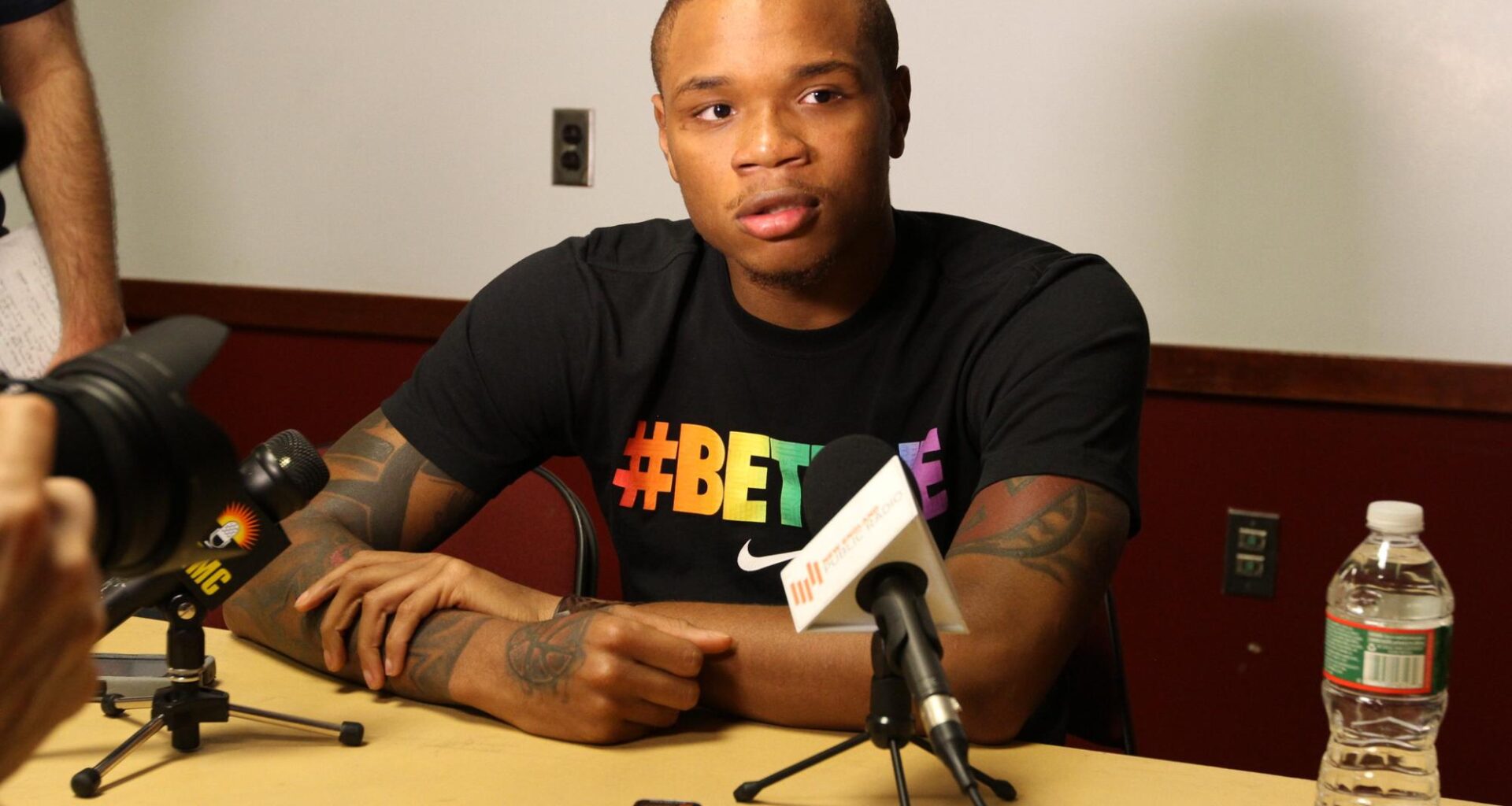Eleven years ago, amid the Massachusetts men’s basketball team’s season, starting shooting guard Derrick Gordon came out as gay, becoming the first to do so in the history of NCAA Division I men’s basketball. On Friday afternoon, the former player returned to UMass to discuss his journey toward peace, confidence and self-love.
At the Stonewall Center, Gordon was hosted by UMass Athlete Ally, a nationally recognized advocacy group for LGBTQ equality in sports. He discussed his basketball journey and his parallel course towards acceptance from his community, teammates and loved ones.
Gordon exploded onto college basketball’s radar in the 2011-12 season when he led Western Kentucky to an NCAA Tournament berth as a freshman. The Plainfield, New Jersey, native led the team in scoring and made the All-Sun Belt third team.
This standout season garnered great interest from the Minutemen as Gordon transferred to UMass a year later. After redshirting a year, he assumed a vital role on the 2013-14 team that brought the Minutemen back to the NCAA tournament for the first time since the 1997-98 season.
While the team thrived, Gordon underwent inner turmoil. He felt trapped, unable to come out to anyone, due in large part to his lifelong dream of making the NBA, something he felt would be compromised by being publicly gay.
Eventually, Gordon said, he was left without a choice. A teammate, Chaz Williams, found an Instagram post Gordon liked of himself and his boyfriend. Gordon tried to play it off, but rumors spread and his team began to treat him differently.
“The amount of teasing, of slurs, in practice, not in practice … it was bad,” Gordon said. “Something had to change. I couldn’t live like that. Either I had to come out or stop playing basketball.”
Though he recognized it could affect his chances of making it to the NBA, Gordon chose to be happy and true to himself.
Gordon came out publicly on April 9, 2014, on ESPN. Before the program aired, he told various people about it beforehand. In addition to his parents and brothers, Gordon told close friends, including high school teammate and NBA superstar Kyrie Irving.
“That was the last time I heard from [Irving],” Gordon said. “And, as someone I thought of as my friend, my brother, that really hurt me.”
At UMass, after coming out, the student body was largely behind him, but the basketball team was not as supportive. Gordon said he never spent time with the team outside of practice and games. He said, with the exception of his former roommate, Tyler Bergantino, he never talks to former Minutemen teammates anymore.
“It was a really dark time for me,” Gordon said. “I just didn’t feel safe.”
Ultimately, Gordon left UMass, transferring to Seton Hall for his final year of eligibility.
There, the dynamic was different, with the team being more accepting of Gordon’s sexuality and willing to socialize with him — something Gordon thinks contributed to the team winning at a high level.
“We were really a brotherhood,” Gordon said.
Gordon ended the conversation on an optimistic note, noting how many more resources and support LGBTQ students have today, and giving advice to students who may be in the same situation he was 11 years ago.
“I know it’s difficult — it took me three years to come out,” Gordon said.
He stressed that despite the difficulties he faced, coming out was the best decision he’s ever made. He said living as his true self has made everything worth it, and if he could go back, he wouldn’t have done it any other way.
Cole Smith-Rakoff can be reached at [email protected]
